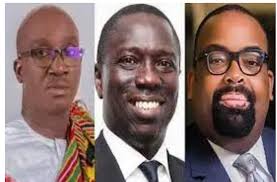Africa
Why An Enabling Playing Field Is Expedient In The Oncoming Edo 2024 Guber Election, by Isaac Asabor

As the Edo 2024 gubernatorial election draws closer, the importance of providing a level playing field for all candidates cannot be overemphasized. An equitable electoral process is critical to ensuring that the best candidate emerges, reinforcing democratic values, and maintaining the peace and trust of the electorate. In a state with a rich political history like Edo, the need for fairness and transparency in this electoral season is not only a democratic imperative but a vital step toward securing long-term stability and progress.
An enabling playing field in any election signifies an unbiased electoral environment where no candidate is unduly favored or disadvantaged. This is particularly important in Edo State, where past elections have witnessed intense competition between political parties. A fair process guarantees that voters’ choices are respected and that the election outcome reflects the genuine will of the people. Furthermore, it emboldens trust in democratic institutions, ensuring that the system works for everyone, not just those in powers or with vast resources.
For instance, giving every candidate equal access to media platforms, security protection, and campaign venues strengthens the democratic fabric of the state. It provides a chance for candidates to clearly communicate their vision and for voters to make informed decisions. When voters feel that the system is just, they are more likely to participate in the election process, thereby fostering higher voter turnout and enhancing democratic legitimacy.
In an era where political polarization is becoming more common, the need for an inclusive political environment cannot be understated. The 2024 Edo gubernatorial election is already showing signs of being a fiercely contested one. With various political parties and aspirants eyeing the governor’s seat, tension is naturally high. Without an even playing field, election disputes and post-election violence could become a threat to the state’s stability.
Disputes arising from rigged or biased processes often spiral into prolonged court cases, protests, and even physical conflict. In a state like Edo, which has witnessed election-related violence in the past, it is essential to avoid any situation that could lead to instability. All stakeholders, including the Independent National Electoral Commission (INEC), political parties, and civil society, must work together to ensure that the rules are clearly defined, respected, and implemented with impartiality.
Voter suppression is another issue that can arise if the political field is skewed in favor of certain candidates. In some cases, voters from specific areas or constituencies are deliberately disenfranchised through intimidation, faulty voting machines, or late delivery of electoral materials. A level playing field ensures that voters across all regions of Edo State have equal access to voting stations and are able to exercise their democratic rights without fear or favor.
This fairness extends to both rural and urban areas, ensuring that all citizens, regardless of their location, are represented equally in the election. Any attempt to marginalize certain groups would undermine the integrity of the entire process and could lead to public distrust in the elected government.
An enabling environment also means transparency and accountability in the electoral process. Voters and political parties need to be assured that votes will be counted fairly, and the results will be accurate. This is where the role of INEC becomes critical. The commission must ensure that the election is conducted without bias, with transparent procedures and well-monitored electoral activities.
When the playing field is equal, candidates are more likely to focus on issue-based campaigns rather than resorting to mudslinging or political thuggery. This shift elevates the level of discourse, allowing for constructive debates that benefit the electorate. It also places governance at the center of the election, as candidates are compelled to present credible plans and visions for the state’s future.
In the long run, fair elections lead to the selection of competent leaders who are better positioned to serve the people. Edo State, known for its strong political consciousness, deserves leaders who are chosen based on merit and their capacity to bring development, not those who rise to power through manipulation or coercion.
Civil society organizations and the media play pivotal roles in ensuring that the 2024 Edo gubernatorial election is free and fair. They must serve as watchdogs, holding all political actors accountable to democratic principles. By offering balanced reporting, fact-checking campaign promises, and highlighting instances of malpractice, the media can help create a more informed electorate.
Civil society groups, on the other hand, can provide voter education, ensuring that citizens understand their rights and responsibilities. Their advocacy can also pressure electoral bodies to maintain impartiality and resist the influence of political elites.
The oncoming Edo 2024 gubernatorial election presents an opportunity for the state to further strengthen its democratic institutions and show the country that fair competition is the cornerstone of credible governance. An enabling playing field is expedient not only for the legitimacy of the electoral process but also for the long-term peace and prosperity of Edo State. By ensuring that all candidates are given a fair chance, and that the will of the people is genuinely reflected, Edo can continue to lead by example in Nigeria’s democratic journey.

























